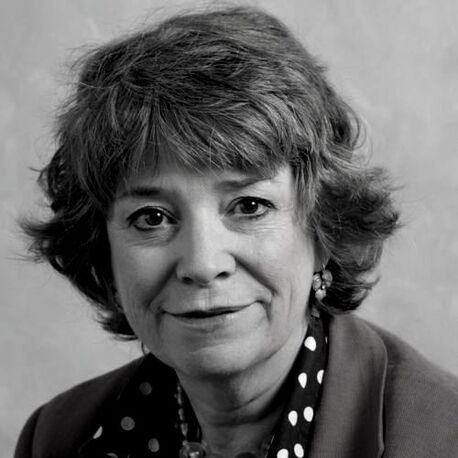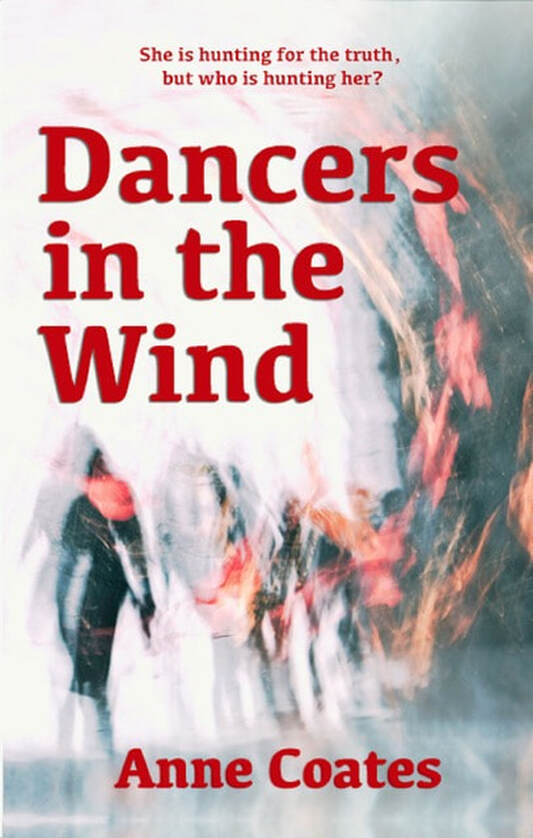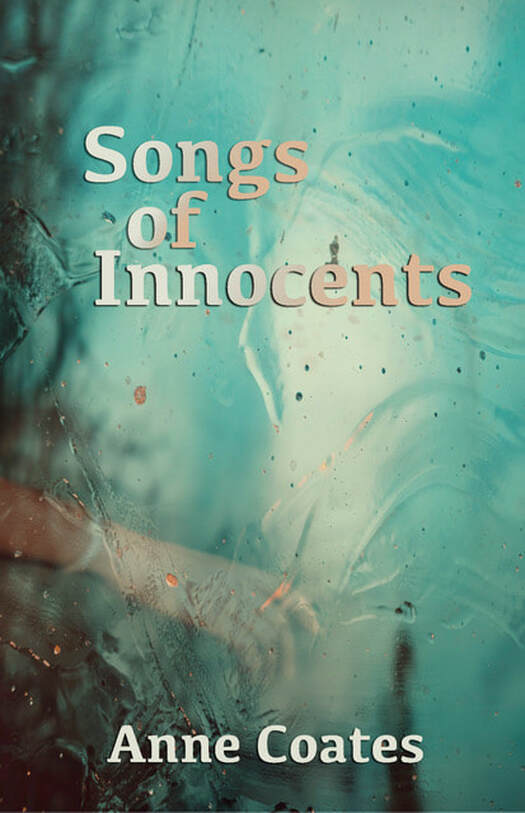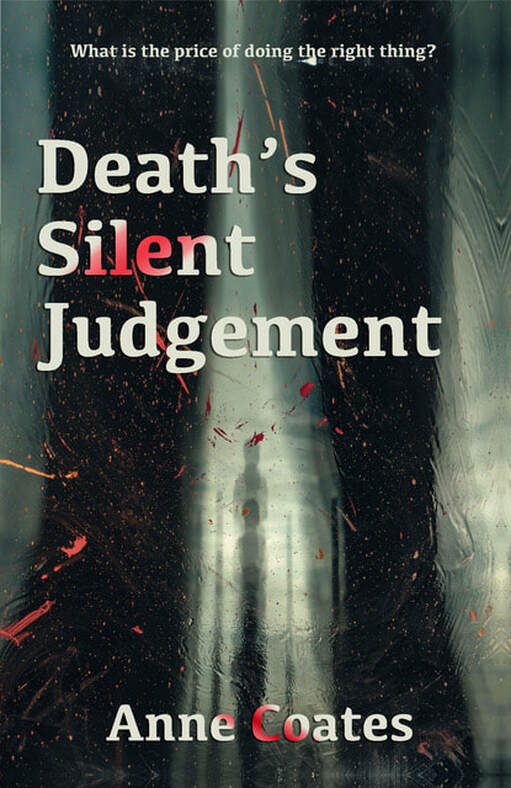
It gives me great pleasure to welcome Anne Coates onto the website today. Anne is the author of the Hannah Weybridge series of crime novels, as well as seven non-fiction titles.
Alex: Tell us a bit about yourself, Anne.
Anne: My life began in Clapham, London and I now live about four and a half miles away in East Dulwich. In between my family moved to Harlow in Essex and I went to university in Portsmouth and Rouen. Since graduating I’ve lived and worked in various parts of London. I love my local area where I continually bump into people I know – so much so that I always leave extra time to get somewhere!
I think as soon as I could hold a pencil, I’ve been scribbling away at something but it took me a long time to find my “voice” even though I was working for book publishers and magazines. Eventually I had short stories accepted in women’s magazines and I have written seven non-fiction books for a variety of publishers. My first crime novel, Dancers in the Wind, didn’t find a publisher when I first wrote it. I stuck it in a drawer for years then rewrote it. It found a home with Urbane Publications and much to my delight became the first in my Hannah Weybridge series. Sadly Urbane ceased trading in April 2021 but I am thrilled that Red Dog Press is now publishing new editions in preparation for my new Hannah Weybridge novel, Stage Call, in 2022.
Alex: Tell us a bit about yourself, Anne.
Anne: My life began in Clapham, London and I now live about four and a half miles away in East Dulwich. In between my family moved to Harlow in Essex and I went to university in Portsmouth and Rouen. Since graduating I’ve lived and worked in various parts of London. I love my local area where I continually bump into people I know – so much so that I always leave extra time to get somewhere!
I think as soon as I could hold a pencil, I’ve been scribbling away at something but it took me a long time to find my “voice” even though I was working for book publishers and magazines. Eventually I had short stories accepted in women’s magazines and I have written seven non-fiction books for a variety of publishers. My first crime novel, Dancers in the Wind, didn’t find a publisher when I first wrote it. I stuck it in a drawer for years then rewrote it. It found a home with Urbane Publications and much to my delight became the first in my Hannah Weybridge series. Sadly Urbane ceased trading in April 2021 but I am thrilled that Red Dog Press is now publishing new editions in preparation for my new Hannah Weybridge novel, Stage Call, in 2022.

Alex: How would you describe your writing, and are there particular themes that you like to explore?
Anne: I didn’t start out thinking about particular themes for my series but fighting corruption on any level and supporting/getting justice for those who have suffered is prevalent in all the books. My protagonist, Hannah Weybridge, is no super(wo)man but she is a fighter often without thinking about her own safety. She’s my alter ego – or how I’d love to be if only I had the courage!
Although my books are set in the 1990s, many of the themes are sadly still prevalent today – maybe even more so – prostitution and corruption; trafficking; honour killing and FGM; child exploitation and government cover-ups.
Alex: Are you a writer that plans a detailed synopsis or do you set out with a vague idea and let the story unfold as you write?
Anne: I’m useless at plotting and planning but I do try as it makes it easier to keep track of events and characters. I print out a calendar for the time of the narrative to keep the timeline accurate. Before I start writing, I have an image or a scene in my mind and the story evolves and develops from that. Usually I have no idea how the book will end and I often change the dénouement during rewrites.
Alex: Tell us about your latest novel.
Anne: In Stage Call (to be published in January 2022 by Red Dog Press), Hannah Weybridge becomes involved in investigating the death of Joan Ballantyne, an actress whose autobiography she has been collaborating on. Hannah is still recovering from the events of Perdition’s Child and “ghosting” the book was meant to be a comfortable commission. However, Hannah is drawn into the investigation when the dead actress’s son asks her to look into some of the circumstances of his mother’s death which was initially thought to have been suicide…
Anne: I didn’t start out thinking about particular themes for my series but fighting corruption on any level and supporting/getting justice for those who have suffered is prevalent in all the books. My protagonist, Hannah Weybridge, is no super(wo)man but she is a fighter often without thinking about her own safety. She’s my alter ego – or how I’d love to be if only I had the courage!
Although my books are set in the 1990s, many of the themes are sadly still prevalent today – maybe even more so – prostitution and corruption; trafficking; honour killing and FGM; child exploitation and government cover-ups.
Alex: Are you a writer that plans a detailed synopsis or do you set out with a vague idea and let the story unfold as you write?
Anne: I’m useless at plotting and planning but I do try as it makes it easier to keep track of events and characters. I print out a calendar for the time of the narrative to keep the timeline accurate. Before I start writing, I have an image or a scene in my mind and the story evolves and develops from that. Usually I have no idea how the book will end and I often change the dénouement during rewrites.
Alex: Tell us about your latest novel.
Anne: In Stage Call (to be published in January 2022 by Red Dog Press), Hannah Weybridge becomes involved in investigating the death of Joan Ballantyne, an actress whose autobiography she has been collaborating on. Hannah is still recovering from the events of Perdition’s Child and “ghosting” the book was meant to be a comfortable commission. However, Hannah is drawn into the investigation when the dead actress’s son asks her to look into some of the circumstances of his mother’s death which was initially thought to have been suicide…

Alex: What was the first book you read?
Anne: No idea! However, the book, which had a major impact on me was Alice in Wonderland read to me by my mother who had a wonderful voice and a talent for becoming the characters. She taught me to read and lead by example – I’d often see her in an armchair totally absorbed in a different world. We didn’t have the money to buy a lot of books but visited the library every week. My mother read everything I wrote and was so supportive but sadly didn’t live long enough to see my Hannah Weybridge series published.
Alex: How much research do you do and what does it usually entail?
Anne: As a journalist I was taught to check facts from three sources and this stands me in good stead. Frequently my research has been done way before I even think of a book, as it’s often something I have written about or been involved with. But I also rely on people (usually long-suffering friends) who are experts in their field. One of my doctor friends is brilliant at solving medical problems for me. So much so that I did suggest we started writing medical thrillers together. If I don’t know the right person I often know someone who does and I am indebted to people who share their knowledge. For Perdition’s Child an Aussie friend went through the Australian characters’ dialogue with me.
Alex: Do you ever base your characters on people you have encountered in real life?
Anne: I have plundered the lives of some of my family. My mother was the only child of a second marriage and her half brothers and sister were a lot older so are not around to moan at me! Sometimes I borrow characteristics, often I take something of a real person that I use, or the way someone moves or dresses can become a catalyst for a character. I pick up snatches of conversation on the bus or train and frequently use comments (usually unflattering) that have been made about or to me!
Anne: No idea! However, the book, which had a major impact on me was Alice in Wonderland read to me by my mother who had a wonderful voice and a talent for becoming the characters. She taught me to read and lead by example – I’d often see her in an armchair totally absorbed in a different world. We didn’t have the money to buy a lot of books but visited the library every week. My mother read everything I wrote and was so supportive but sadly didn’t live long enough to see my Hannah Weybridge series published.
Alex: How much research do you do and what does it usually entail?
Anne: As a journalist I was taught to check facts from three sources and this stands me in good stead. Frequently my research has been done way before I even think of a book, as it’s often something I have written about or been involved with. But I also rely on people (usually long-suffering friends) who are experts in their field. One of my doctor friends is brilliant at solving medical problems for me. So much so that I did suggest we started writing medical thrillers together. If I don’t know the right person I often know someone who does and I am indebted to people who share their knowledge. For Perdition’s Child an Aussie friend went through the Australian characters’ dialogue with me.
Alex: Do you ever base your characters on people you have encountered in real life?
Anne: I have plundered the lives of some of my family. My mother was the only child of a second marriage and her half brothers and sister were a lot older so are not around to moan at me! Sometimes I borrow characteristics, often I take something of a real person that I use, or the way someone moves or dresses can become a catalyst for a character. I pick up snatches of conversation on the bus or train and frequently use comments (usually unflattering) that have been made about or to me!

Alex: Which was the last book you read that blew you away?
Anne: Like many people, I was finding it difficult to concentrate on reading during the lockdowns but then I began reviewing books for ‘The Arbuturian’, an online lifestyle magazine and that helped me focus. I’ve read a lot of amazing books but two, which really grabbed me are The Last House on Needless Street by Catriona Ward and The Last Thing To Burn by Will Dean. Both are brilliantly original and totally compelling.
Alex: How do you market your books?
Anne: As my books have been published by small, indie publishers there isn’t a huge budget for marketing and this is where social media and book bloggers are fabulous they are so generous with their time. I enjoy giving talks to groups about my books and writing and have been on crime writing panels. I probably spend too much time on Twitter!
Alex: What are your interests aside from writing? And what do you do to unwind?
Anne: I love being with family and friends putting the world to rights over a glass or two of wine. I’ve always been a fan of film and theatre and I’m very good at guessing twists probably from having worked so long in publishing and writing. I sing (or try to) in my local church choir and I find this really helps with stress – I have to concentrate so hard on the music that my brain can’t wander off down worrying rabbit holes.
Alex: Thank you so much Anne for talking us through your writing journey. It's really interesting to know how some authors like yourself never quite know how their stories are going to conclude until the thing's been written or rewritten. Personally, I seem incapable of writing anything without having worked on a very detailed synopsis first. I wish this wasn't the case. (Perhaps it's something to do with having an appalling sense of direction. LOL!) And yes, I have heard good things about both the Will Dean and Catriona Ward books - they are on my ever-growing to-read list. Anyway, it's been a pleasure to talk, and good luck, of course, with Stage Call. I shall keep an eye out for it.
Anne: Thank you Alex I have really enjoyed chatting with you.
Anne: Like many people, I was finding it difficult to concentrate on reading during the lockdowns but then I began reviewing books for ‘The Arbuturian’, an online lifestyle magazine and that helped me focus. I’ve read a lot of amazing books but two, which really grabbed me are The Last House on Needless Street by Catriona Ward and The Last Thing To Burn by Will Dean. Both are brilliantly original and totally compelling.
Alex: How do you market your books?
Anne: As my books have been published by small, indie publishers there isn’t a huge budget for marketing and this is where social media and book bloggers are fabulous they are so generous with their time. I enjoy giving talks to groups about my books and writing and have been on crime writing panels. I probably spend too much time on Twitter!
Alex: What are your interests aside from writing? And what do you do to unwind?
Anne: I love being with family and friends putting the world to rights over a glass or two of wine. I’ve always been a fan of film and theatre and I’m very good at guessing twists probably from having worked so long in publishing and writing. I sing (or try to) in my local church choir and I find this really helps with stress – I have to concentrate so hard on the music that my brain can’t wander off down worrying rabbit holes.
Alex: Thank you so much Anne for talking us through your writing journey. It's really interesting to know how some authors like yourself never quite know how their stories are going to conclude until the thing's been written or rewritten. Personally, I seem incapable of writing anything without having worked on a very detailed synopsis first. I wish this wasn't the case. (Perhaps it's something to do with having an appalling sense of direction. LOL!) And yes, I have heard good things about both the Will Dean and Catriona Ward books - they are on my ever-growing to-read list. Anyway, it's been a pleasure to talk, and good luck, of course, with Stage Call. I shall keep an eye out for it.
Anne: Thank you Alex I have really enjoyed chatting with you.
